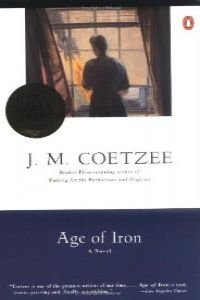Sobriquet 37.8
The following post was originally published on 12/18/07.
Why I am so grateful for the attention: One of the most frustrating aspects of dissertation writing, I feel, is the sheer isolation the endeavor requires. In addition to the time spent alone in the library reading and researching, in addition to the hours passed hermetically sealed in one's office, the scholar finds him- or herself strangely isolated even when in the company of others. Basically, as one digs deeper and deeper into a narrow academic vein, he or she finds fewer and fewer people who comprehend what he or she does, and even fewer who understand why. One of the reasons I have turned to the internet for support as I write my dissertation is to combat this solitude, essentially turning a private and isolating experience into a public and communal one. I imagine that if one were so inclined, he or she could quite literally blog a dissertation, incorporating suggestions and critical insights into the work as he or she progresses, but I will forgo that level of interactivity to focus on blogging the experience of writing a dissertation. In doing so, I hope to A) alleviate the aforementioned isolation, B) document the process of writing a dissertation in real-time to enable others to better comprehend what it means to write a doctoral thesis, and C) engage in meaningful discourse with people inside the academy and out.
In any case, my assignment for today was to review two more articles dealing with J. M. Coetzee's Age of Iron
The second essay I read--at the Old Country Buffet and Barnes & Noble's cafe, of all places--is easily one of the best pieces of literary criticism I have read in the decade or so I have been working with such writing. Michiel Heyns's excellent "Houseless Poverty in the House of Fiction: Vagrancy and Genre in Two Novels by J. M. Coetzee" initially struck me as having the potential to be one of those irritatingly abstract discussions of a vague theme one occasionally finds in academic writing. Fortunately, I was wrong. Heyns's essay is an extremely intelligent, thoughtfully-constructed, clearly-written, and tightly-focused reading of Life and Times of Michael K and Age of Iron. Drawing upon various canonical treatments of home to establish a thoroughly convincing literary lineage for Coetzee's two vagrants, Michael K and Vercueil, Heyns focuses on Coetzee's break from the traditionally picaresque depictions of vagrant-heroes and refusal to adhere to conventions of the Bildungsroman (wherein an "uncivilized" homeless person becomes civilized over the course of the novel) as a means to, again, explore the social and political significance of marginality. Furthermore, Heyns's decision to juxtapose the allegorical nature of Michael K's vagrancy to the realist nature of Vercuil's homelessness highlights various changes in Coetzee's fiction in the half-decade separating the publication of the two novels.
For tomorrow: Well, since I have so much extra stuff I need to address, I will play it fairly conservatively and assign myself another two essays.
Works Cited
Heyns, Michiel. "Houseless Poverty in the House of Fiction: Vagrancy and Genre in Two Novels by J. M. Coetzee." Current Writing: Text and Reception in Southern Africa. 11.1 (1999): 20-35.
Probyn, Fiona. "J. M. Coetzee: Writing with/out Authority." Jouvert: A Journal of Postcolonial Studies. 7.1 (2002): 45 paragraphs.
Probyn, Fiona. "J. M. Coetzee: Writing with/out Authority." Jouvert: A Journal of Postcolonial Studies. 7.1 (2002): 45 paragraphs.




Comments
Post a Comment